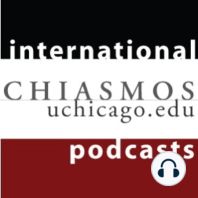93 min listen

"New Partnership Paradoxes in U.S.-China Relations"
"New Partnership Paradoxes in U.S.-China Relations"
ratings:
Length:
43 minutes
Released:
Jan 26, 2008
Format:
Podcast episode
Description
Keynote Address at the 2008 China Symposium by Sun Zhe, professor of the Institute for International Studies and Director of the Center for U.S.-China Relations at Tsinghua University in Beijing. Professor Sun identifies three new "partnership paradoxes" in U.S.-China relations: Trade, Taiwan and Democracy. (1) China and the U.S. today are traversing an economic glacier of mutual interdependence and they have to depend on each other much more than either would probably choose; (2) Taiwan has become the most critical issue that constitutes an interlocking web of misperceptions which may lead to a potentially explosive relationship between the U.S. and China; and (3) The Chinese model of development has attracted the world's attention and has led to questions such as whether democracy "made in China" is also possible. In dealing with these new partnership paradoxes, the U.S. and China should seek consensus and to define principles and work out proper policies. From the World Beyond the Headlines Series. Part of a day-long symposium presented by the US-China Peoples Friendship Association (USCPFA) Chicago chapter. Co-Sponsored by the Center for East Asian Studies.
Released:
Jan 26, 2008
Format:
Podcast episode
Titles in the series (100)
Latin American Business Conference: "Managing Growth: Uncertainty in Latin America" by CHIASMOS: The University of Chicago International and Area Studies Multimedia Outreach Source [audio]